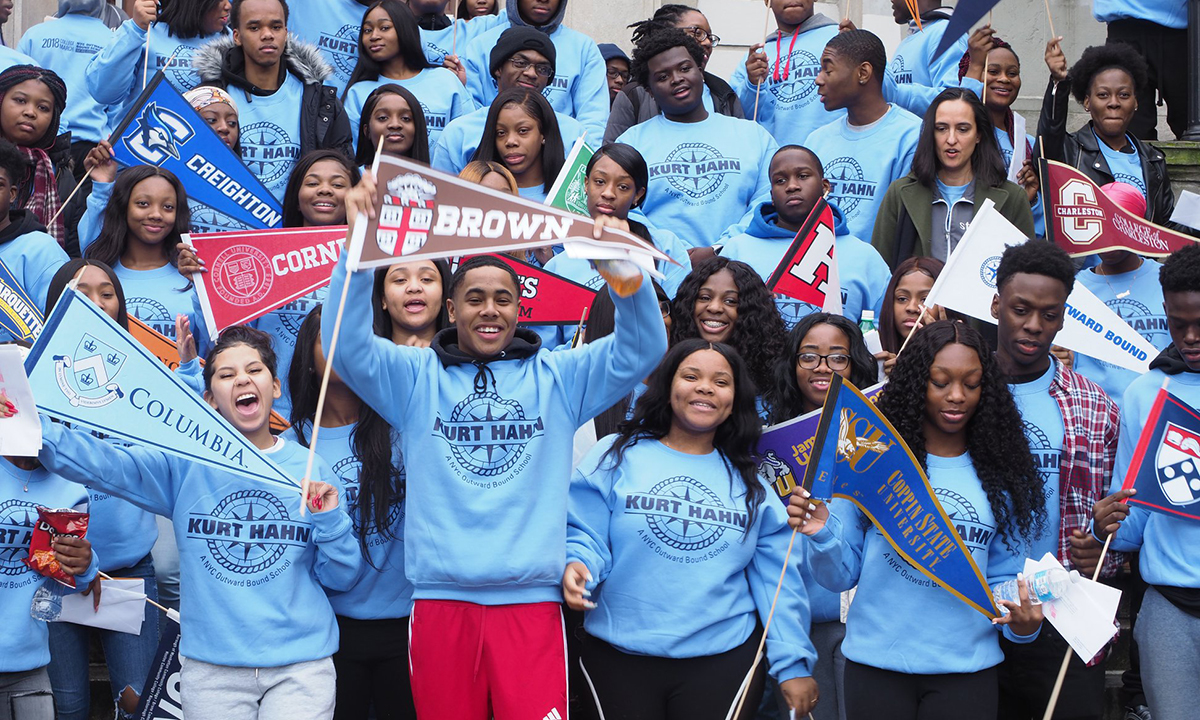Six Core Lessons in Preparing Students for Success in School and Life
Stopol: High expectations, respect for teachers, support for principals, trust — some ingredients for ensuring schools do their best for all children

Get stories like this delivered straight to your inbox. Sign up for The 74 Newsletter
During my 34 years as president and CEO of NYC Outward Bound Schools, I worked with hundreds of schools serving students of every background. Many of those interactions were uplifting and affirming, while others were dispiriting. But all illuminated a set of lessons for creating and sustaining successful schools. Taken together, these lessons provide a recipe for educators, policymakers and all who are committed to ensuring that public schools support the learning, development and well-being of all children — regardless of background or circumstance — so they have the knowledge, skills and mindsets to achieve career success and contribute to their communities.
Always keep students at the center. A former colleague of mine is fond of saying: “The main thing is keeping the main thing the main thing.” In education, students are the main thing, and the focus should always be on attending to their full range of needs. Successful schools take a whole-child approach, focusing on both the intellectual and social-emotional development of their students. They understand that helping students develop self-confidence, perseverance, integrity, empathy and compassion are not only essential school functions, but that doing so increases academic success.
Still, given the complexities associated with running schools, many educators lose sight of the main thing. When this happens, a surefire way of staying grounded and on track is to invoke this simple question with regularity: “What does this conversation have to do with our students?”
Keep expectations high for all students. Virtually everyone in education says they do this, but many educators don’t believe on a visceral level in the capability of their students — particularly those who are Black or brown. I am reminded of Outward Bound’s founder, Kurt Hahn, who, when told by a teacher, “I have no faith in that boy,” promptly responded, “Then you shouldn’t be teaching him.”
Hahn had it right. Everyone in the school community must genuinely believe in each student, and recognize the obligation of educators to help unlock children’s potential and nurture their gifts. Relatedly, truly believing that every child has talents waiting to be tapped into means it is imperative to strike the terms “gifted and talented” from schools and cease using them as a way of sorting kids.
Build school communities of trust and belonging. Trust is the foundation upon which good schools are built. Good schools are simply not possible without high levels of trust between students and adults, as well as among them. Trust is a prerequisite for the kind of trial and error, risk-taking and vulnerability that learning demands. Without it, even the best curriculum and instructional programs struggle to gain traction.
A culture of trust needs to be cultivated. To establish a sense of belonging and value felt by every student, schools must create a schoolwide ethos (to quote Hahn again) of: “We are crew, not passengers,” where everyone takes responsibility for one another. It also means providing students with regular opportunities to have their voices heard and ensuring that everyone can see themselves represented in a culturally responsive curriculum.
Connect learning to the real world. For too many students, school is a place of rote activity where what they learn has no obvious connection to their lives. The best way to remedy this is through project-based learning that engages students in purposeful study of real-world issues in which they are deeply invested — climate change, immigration and gun violence, for example — and calls upon them to apply their learning in addressing those issues.
This approach routinely yields high-quality and rigorous work because students aren’t just learning history, science and literature abstractly, but are instead becoming historians, scientists and avid readers who are breaking down the walls between the classroom and the outside world.
Honor teachers as professionals: The all-too-common experience for teachers is to deliver their lessons behind a closed door, with little opportunity to observe and learn from colleagues. I’ve seen how teachers can flourish when given regular opportunities to collaborate, visit each other’s classrooms and take part in professional development that teaches skills and content they can apply in their own classrooms.
Teachers bring tremendous expertise and care to their work — and yet, society often fails to give the profession the respect and support it deserves. Educators need time and other resources that make professional learning and collaboration central to the teaching experience.
Support and empower principals. Successful schools cannot exist without strong, effective leadership. In fact, I’d point to the nature and quality of principal leadership, more than any other factor, as the key determinant of school success.
Principal leadership need not be a solo act. The most successful principals I’ve seen are those who distribute leadership, harness the power of teachers in informing decisions, encourage students to provide their perspective, and view parents and families as true partners in their children’s education. But ultimately, it’s the principal who establishes the culture, decides how resources are utilized and has the most influence on, and accountability for, what happens in schools.
It’s crucial that principals, like teachers, be given opportunities for professional learning and collaboration with colleagues that helps them better serve their students. Moreover, much like the CEOs of companies, principals must be given full autonomy to run their schools. Their time must also be structured so the bulk of it is spent on matters related to teaching, learning and students, rather than being mired in adminis-trivia.
These lessons are not a complete playbook for achieving school success. But based on my experience of the past three and a half decades, I know that by heeding these six core lessons, schools can realize the promise of public education — of ensuring that all children are prepared for meaningful, productive lives in which they can compete economically and contribute civically.
Get stories like these delivered straight to your inbox. Sign up for The 74 Newsletter

;)
